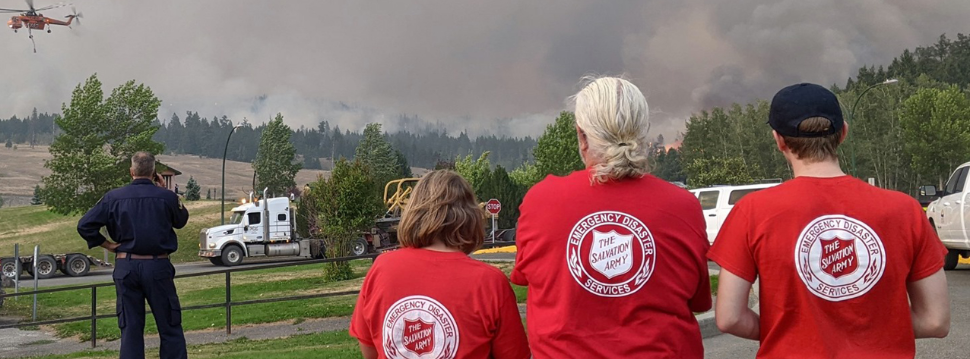
Faith and Community Based Organizations’ Disaster Training
We welcome all faith-based and community organizations to share this training with their leaders, members, and the broader community. Simply click the button below and register with your email to begin strengthening community resilience—one person, one family, one congregation, and one community at a time.
After registering through the link, a confirmation email will be sent to you. Please note that this email may be directed to your spam or junk folder. Be sure to check your email shortly after clicking “Submit.”
New Independent Study Course Listings
Serving Diverse Economic, Ethnic and Religious Communities
Learn how to effectively serve diverse communities during disasters by building partnerships, delivering resources, and meeting the unique needs of people from various nationalities, cultures, and faiths.
How The Salvation Army Responds to Disasters: A Partner’s Orientation
Gain an insider's perspective on The Salvation Army’s disaster response structures, terminology, and systems. This course equips partner organizations with the knowledge needed to collaborate effectively during emergencies.
Protecting Your Nonprofit from Disaster Events
Drawing on over 100 years of experience, this course shares actionable strategies, resources, and checklists to help nonprofit organizations prepare for disasters and mitigate potential impacts.
Preparing Your Congregation for Disasters
This course empowers faith leaders to prepare their congregations for disasters by leveraging their strengths and addressing key issues before, during, and after an event. Learn practical steps to ensure your congregation is ready for both small and large-scale emergencies.
Long-Term Disaster Recovery: Supporting Communities and Individuals
Discover resources and strategies to assist individuals and communities in the aftermath of a disaster. This course explores available aid, how to direct congregants to assistance, and ways your church can participate in long-term recovery efforts.
Mass Feeding Essentials
Feeding large groups in a disaster requires extensive planning and preparation. This course covers essential topics such as staffing, supply chain management, and equipment needs to ensure your organization is ready to provide mass feeding services effectively.
Introduction to Emergency Management
Understand the fundamentals of emergency management, including the roles of government agencies, NGOs, and faith-based organizations. This course emphasizes the importance of organizational structures and chains of command to enhance disaster response efficiency and save lives.
How to Engage Tribal Populations in Disaster Response
Build meaningful partnerships with tribal populations during disasters by understanding their cultures, leadership structures, and unique needs. This course provides key resources and guidance for effective collaboration with these communities.
Find training courses specific to your region
If you’re interested in becoming a volunteer with The Salvation Army, we would love to have you join us. Click on the map below to find and register for volunteer training in your region.
The Salvation Army fights natural disasters with acts of God.
With over a century of experience, our history of response efforts lets us tailor our services to fit a specific community in need. We scale to the storm, because when it comes to disasters, one size does not fit all.
Learn more about or Emergency Disaster Services, including our approach to emergency response, emotional and spiritual care needs, long-term disaster recovery, and recent national response efforts.
Disaster Relief Page